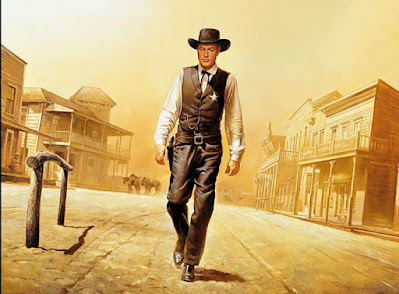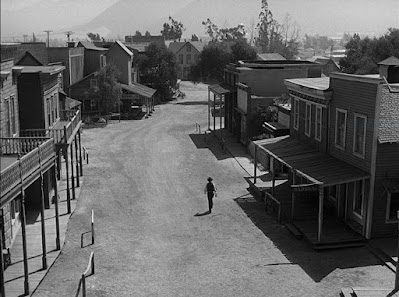I wrote his before and thought I would put it up again - edited - as it seems to have attracted some interest recently.
This is a kind of mish mash of stories about disappointments – not to me as I have rarely been disappointed. I've always prepared myself for one. I remember I was with a casting director in Los Angeles who actually did some casting – most of them just suggest you to a director and then you have to meet/audition. This was for a voice for a movie of which I did loads when living there – still receiving residuals even now. I voiced David Bowie, Bill Hunter, Jason Statham, a voice in Cat Woman (when I met Sharon Stone) a load of voices in Time Line and Kangaroo Jack.
The first time I met the casting director she said 'ok you got it; Thursday and Friday and maybe a day next week.'
I said 'great.'
'Is that all?' she said.
'What do you mean?'
'Well, people usually – well, usually looked pleased!'
I said 'Well I am.'
She would have seen the same reaction if she had told me that out of the hundred people they'd seen for the leading role it was between me and the other guy but the other guy got it. I always thought of it like making a sales call and being told no – try somewhere else.
You will gather, by now, that I didn't really start out to write that lot – it just came to me.
Look at that man above in the poster for Family at War! That's Colin Campbell. Family at War was a wonderful TV series made by one of the greatest television companies; Granada Television. It was, as it implies, about a family: three brothers, two sisters, mother and father, close relatives and friends. It was first shown in 1970 and in 2018 the TV channel Talking Pictures.
I was at drama school, when they were making it, and sometimes I would travel all the way to Manchester to do a walk on for £6 per day. After a few 'walk ons' they gave me three lines for which I got more money.
Colin Campbell played one of the sons, David, which was the best role and he was the best actor in it of his age. There are other fine performances too but he was the chap.
A few years later – 1991 – I did one of the Ruth Rendell Mysteries (Inspector Wexford with George Baker) and Colin Campbell was in it. He played a very small part as a cop in the office. I didn't see any of the episodes so I don't know if he was a uniform cop or what, but he did quite a few episodes.
The first thing I noticed about him was that he was quite tiny – even smaller than me! He also had a limp. I remember saying to Wexford's partner (his cop partner) 'you do know who he is, don't you?' and he shrugged his shoulders no. It wasn't as flippant as it might sound as he was interested – now who was he I have forgotten even though he did 50 episodes of Wexford.
I met Colin later through a mutual friend, as we would go to our pal's plays, premiere's etc. and he was a nice bloke. He still had some kind of limp, which I think I read about and it may have affected him somewhat; I said he was tiny but in Family at War he fills the screen. He was giving a stellar performance as David Ashton most weekday afternoons in Britain in 2018 and it sent his STARmeter on the Internet Movie Date Base up to the 27,000s – that might not seem important to some actors but you won't get an agent in LA if you are not in the top 100,000.
Colin was down in the 200,000 not that long before. He was famous again which is a shame as he died on March 1st 2018 aged 81. nine months before becoming famous again; but what is fame?
It is a funny old business when casting directors can dismiss actors like Colin Campbell and leave him to his few lines in Wexford once in a while – the other actors in Wexford hadn't heard of him either and when I watch him I often wonder if he knew the series, Family at War, was coming on; RIP.
But there are loads of disappointments – I went to Dublin many years ago to do a Guinness commercial. I particularly remember it for a couple of reasons, one the song they used, which was recorded by the pop group Blue Mink famous for their song Melting Pot – in our case it was Get Together With a Guinness Right Now.
We worked in a pub in Baggot Street, Dublin. I went in to the loo and someone had written on the wall Sometimes I think I'd like to be the Saddle on a Bike. I remember thinking how wonderful that scanned.
The other thing I remember it for, was the girl who was in it; we'll call her Mavis.
Before filming starts the artists, the actors, the talent, or whatever you want to call us, gather on the set, which in this case was the customer side of the bar, and rehearse the scene for the camera. Three blokes and an attractive girl. The girl had been in make up and was wearing rollers. The three guys included me, and two other well known actors of the day; we were cast in London and flown over the previous evening. The director was an Englishman and most of the crew were from Dublin.
After we ran through the scene the girl had to go back to make up – she was a local Dublin girl. The director asked for one of the girl extras to take the girl's place whilst Mavis was in make up. The 'stand in' was very nice and we all got on well together and then it became obvious that the director preferred the stand in as opposed to the girl who was being made up, quaffed and dressed.
'Get rid of Mavis' he suddenly said to his assistant.
“What?' said the assistant.
'Get rid of her – Mavis'
Of course her name wasn't Mavis – but what an arsehole.







